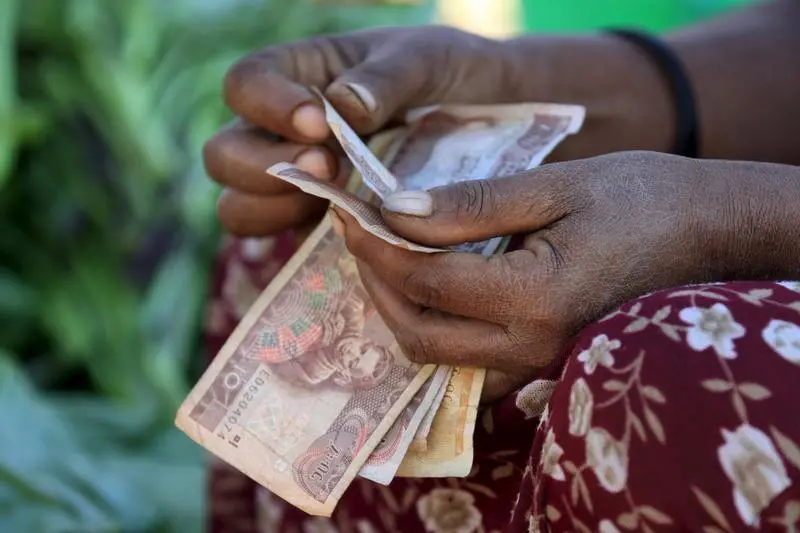PHOTO
NAIROBI - Ethiopia is ramping up efforts to restructure its $1 billion international bond as part of a broader debt rework. Investors have balked at indications that the government is seeking a haircut, setting the stage for tense negotiations.
Here are some key issues in the restructuring process:
WHY IS ETHIOPIA RESTRUCTURING ITS DEBT?
Pressed by acute foreign currency shortages and sluggish government revenues amid a civil war in the northern region of Tigray, the government said in early 2021 it would restructure its debt under the G20 Common Framework initiative.
Chad, Zambia and Ghana have all sought to restructure their debts under the programme designed to provide swift debt relief to developing countries.
Ethiopia's process was drawn out by the Tigray conflict which ended in late 2022 and slow progress in meeting International Monetary Fund requirements to abandon its currency peg, ditch capital controls and introduce an interest rate-based monetary policy framework.
The East African nation, the continent's second most populous with 120 million people, floated its birr currency on July 29, helping it secure a $3.4-billion four-year IMF loan programme.
The IMF deal unlocked more financing from lenders including the World Bank and paved the way for a fresh debt restructuring push.
WHAT ARE THE EXPECTED OUTCOMES?
Ethiopia's external debt stood at $28.9 billion in March, according to the government. The IMF identified a $3.5 billion financing gap during the lending programme. Ethiopia needs to plug that through the debt rework, but how that will be attained depends on the restructuring negotiations. The government said it hoped the restructuring would achieve $4.9 billion in debt relief, citing official creditor proposals, though without a specified time frame.
To achieve comparability of treatment, a Common Framework tenet that requires commercial creditors to be treated in a similar way to official counterparts, Ethiopian officials have indicated they will seek a 20% write down on the principal of its $1 billion bond.
That has angered bondholders who said last week it does not reflect Ethiopia's economic fundamentals, and added that the government was not following a "good faith" approach to debt restructuring.
Ethiopia has not commented on the bondholder statement.
HOW WILL THAT DISPUTE BE RESOLVED?
The dispute revolves around whether Ethiopia has a liquidity problem - a short-term issue - or whether it faces a longer-term solvency crisis.
Export and tax revenues have been under pressure and FX reserves dwindling, hampering Ethiopia's ability to service its debt, say those who see it as a solvency issue, even though at 40.3% of GDP, the debt is fairly low.
Kevin Daly, portfolio manager at abrdn, which holds the bond, said a potential solution could be found somewhere between the government proposed haircut and extending the repayment period.
The IMF's debt sustainability analysis shows Ethiopia has seen protracted breaches of a number of indicators the fund usually uses to identify a solvency crunch, such as the external debt-to-exports ratio.
Diverging assessments could set the stage for tense negotiations.
"Unduly conservative assumptions, coupled with unambitious fiscal efforts, may lead to protracted restructuring negotiations," the bondholder group warned.
HOW ARE THE REFORMS WORKING AND WHAT ARE THE NEXT STEPS?
The birr currency has nearly halved in value this year to trade at 103.97 per dollar - according to data from Commercial Bank of Ethiopia, the country's biggest lender, closing in on the black market rate of 115-120.
However, progress on the key objective of unifying the two rates was initially hampered by commercial banks' hesitance to do so swiftly. Traders also hiked prices of basic commodities such as cooking oil.
Authorities have responded by closing thousands of businesses that were deemed to have raised prices unjustifiably, and the federal government has sought to boost supplies of essential commodities by ramping up imports.
The IMF says the government will have to take further action, perhaps by tightening monetary policy, to curb inflationary pressures.
The Fund has scheduled an unusually fast pace of reviews in order to closely monitor the impact of reforms.
The first review, scheduled for mid-August, is already underway and will focus on aspects such as FX reserves and external debt.
Following reviews are scheduled for the end of September and in December, at which point both the IMF and government expect Ethiopia to have sealed a restructuring deal.
(Reporting by Duncan Miriri; Additional reporting by Dawit Endeshaw in Addis Ababa; Editing by Karin Strohecker and Andrew Heavens)





















